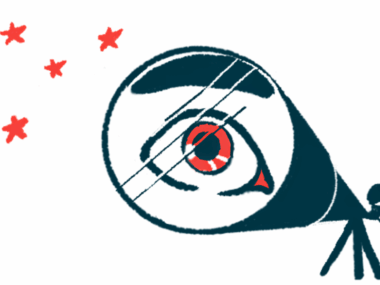For women with hemophilia, vigilance isn’t pathology
Many of us grew up being taught to downplay our symptoms
Written by |

I had previously heard about the term health anxiety obsessive-compulsive disorder (also known as hypochondriasis or illness anxiety disorder), so one day I decided to research its symptoms. Frequent visits to doctors and the emergency room, seeking reassurance that you are not ill from physicians, friends, and family, and paying heightened attention to bodily symptoms were all listed. I see parts of myself in these behaviors, but I quickly realized that while they may appear similar, the root causes are different.
As a woman with hemophilia A, I spent years knowing something was wrong with my body. When my ankles hurt in elementary and middle school, my parents took me to an orthopedic doctor, where we were told that I was lazy and lying to avoid participating in physical education and sports. But I longed to run like the other kids, and I hated myself for feeling weak, incapable, and unable to keep up with them. I believed there was something inherently wrong with me, and I thought it was my fault.
I experienced horrendous menstrual periods, with bleeding that lasted 10 days and required a pad change every 30 minutes. It was unbearable. When I felt a wave of weakness wash over me, I often wondered if I would faint. Every time I felt weak, a surge of anxiety followed, because I didn’t want to lose consciousness. I just wanted to feel normal.
In pursuit of help, doctors labeled me with an anxiety disorder and prescribed medication. I insisted to them that they had the cause-and-effect relationship wrong; I panicked because something was genuinely wrong with my body. Eventually, after starting prophylactic treatment to prevent bleeds from hemophilia, I was able to stop taking anxiety medications.
Responding to injuries with hemophilia
People with hemophilia must approach injuries differently. We know the mantra, “When in doubt, treat.” Taking a dose of medication if we suspect we might be bleeding is unlikely to cause harm; however, delaying necessary treatment in the event of a bleed can lead to serious complications. As a result, we tend to seek input from doctors more frequently, request imaging more often, and worry about our physical health more than others might. Unfortunately, we can face judgment, be mislabeled, or be misunderstood by those unfamiliar with hemophilia.
I recently reaffirmed my commitment to adhering to my prophylaxis routine to prevent bleeds. I noted that I had caused a calf bleed by missing a dose of factor VIII (FVIII), which was supposed to help prevent such injuries. The pain in my calf began after I’d been traveling, likely from trekking through large airports. When I first felt the pain, I briefly doubted whether I was experiencing a bleed. My feet had been curled up in the airplane seat, and I thought, “What if this is deep vein thrombosis rather than a bleed?” If that had been the case, treating myself with FVIII wouldn’t have been a good idea! Thankfully, I realized that scenario was unlikely, so I infused FVIII, and the bleed was resolved. This outcome reinforced the necessity of my treatment.
Another difficult truth for women with hemophilia, particularly those with mild hemophilia, is the struggle to have our bleeds taken seriously. Many have been told that only individuals with severe hemophilia have bleeds that require treatment. This is simply untrue. Unfortunately, many of us grew up being taught to downplay actual bleeds and physical pain, often believing we didn’t have hemophilia and that our pain was normal. We must unlearn these past beliefs to recognize bleeds as they occur today.
See me, hear me, believe me
A lifetime of fighting to be seen, heard, and believed by medical systems filled with misinformation is challenging. We have learned to search for our symptoms online and act as our own medical advocates, often inadequately, out of necessity for our survival. Each negative experience weighs heavily on us because we carry the burden of past medical trauma. So, do we have health anxiety OCD, or is it simply the best way we can care for ourselves?
Recently, I received a diagnosis that requires surgery. Some doctors believe I have this condition, while others do not. This feels hauntingly similar to when some doctors told me I had hemophilia and others said I did not. As I prepare for surgery, I can’t help but wonder if the diagnosis is correct, or if they may find something rare and frightening like cancer. The disagreement among doctors is incredibly distressing, making it difficult to determine who is right. This uncertainty drives me back to Google, where I obsessively search for answers.
I believe the path forward lies in trusting ourselves and surrounding ourselves with knowledgeable medical professionals. Dealing with chronic health conditions may make us appear to have health anxiety OCD, but often that isn’t the case. The right providers will not shame us for reaching out and will guide us through the health challenges we face.
Note: Hemophilia News Today is strictly a news and information website about the disease. It does not provide medical advice, diagnosis, or treatment. This content is not intended to be a substitute for professional medical advice, diagnosis, or treatment. Always seek the advice of your physician or another qualified health provider with any questions you may have regarding a medical condition. Never disregard professional medical advice or delay in seeking it because of something you have read on this website. The opinions expressed in this column are not those of Hemophilia News Today or its parent company, Bionews, and are intended to spark discussion about issues pertaining to hemophilia.



Leave a comment
Fill in the required fields to post. Your email address will not be published.